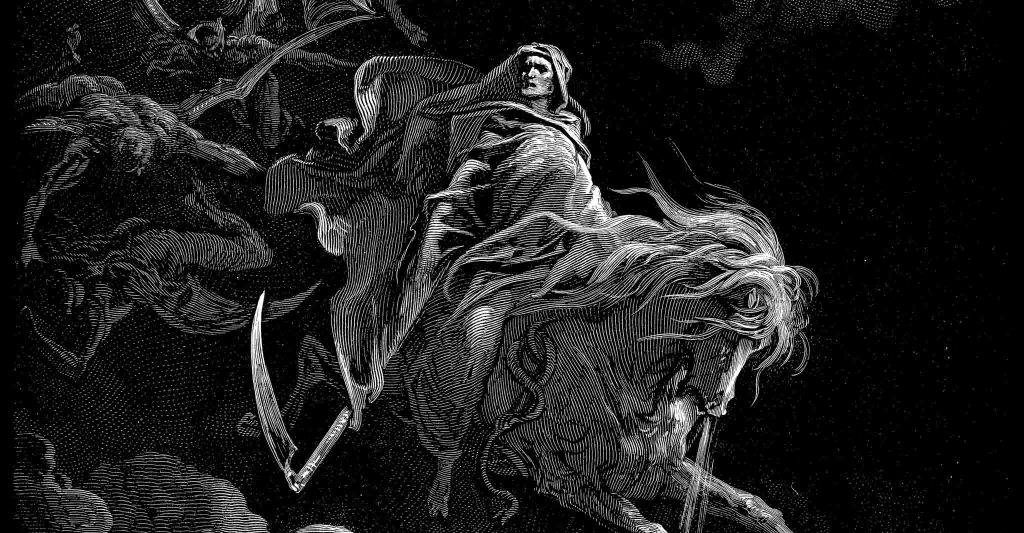
Every time we sin, it is as if we have forgotten God who gave us our very lives and sustains our life every moment. Every sin is a preference to our own wrong desires in contradiction to the will of God. When we sin, we use the life-energy God has given us as a weapon against him.
By Deacon Frederick Bartels
19 August 2024
In our first reading in the holy Mass today, the prophet Ezekiel (chapter 24) gives this stern warning to the House of Israel: “[Y]ou shall rot away because of your sins and groan one to another.”
We’re all aware of how the people Israel often fell into the sin of idolatry. God created them, called them to himself, and delivered them from bondage in Egypt. Yet they were often unfaithful to God, even though they had seen all of his works. As a result, Ezekiel warns Israel that it will suffer God’s punishment.
In our responsorial Psalm, we repeated these words: “You have forgotten God who gave you birth.” These words certainly applied to the unfaithful Israelites, but they also apply to many people today who live as if God does not exist. Many people have forgotten—or reject—the fact that God is the Creator who granted them life, and to whom they own allegiance to his sovereign authority.
Every time we sin, it is as if we have forgotten God who gave us our very lives and sustains our life every moment. Every sin is a preference to our own wrong desires in contradiction to the will of God. When we sin, we use the life-energy God has given us as a weapon against him.
Thankfully, our Lord Jesus Christ suffered and died on the cross in expiation of sin. His passion, death, and resurrection defeated man’s greatest enemies: sin, the devil, and the eternal death of the soul.
Even so, Christ did not come to abolish sin in the world. Nor does his sacrifice on the cross instantly perfect us and heal us of every wrong, sinful desire. However, through the gift of the Holy Spirit, Christ gives us the supernatural power and grace to defeat sin in our lives.
But there is nevertheless a real struggle involved in attaining holiness because we must battle against sinful desires and habits. Therefore holiness is won only at great cost to ourselves and in standing in contradiction to the ways of the world.
In our gospel for today (Matt 19:16-22), Jesus tells the rich young man that if he is to enter into eternal life, he must keep the commandments. There’s an important lesson in this for us.
Salvation is connected to keeping the commandments and to doing good works. We will be judged on whether or not we have been faithful in that regard. In the bible, whenever someone is judged he is judged on his works, whether they are good or evil. Is our life a life of love for Christ, filled with the fruit of good works? Or, on the other hand, is it more about a love for ourselves and our own ideas and wishes?
Love for God is born out in a commitment to keeping the commandments and to conforming our lives to the word of Christ. As our Lord said:
“If a man loves me, he will keep my word, and my Father will love him, and we will come to him and make our home with him. He who does not love me does not keep my words;” (Jn 14:23-24).
The apostle John tells us:
“This is the message we have heard from him and proclaim to you, that God is light and in him is no darkness at all. If we say we have fellowship with him while we walk in darkness, we lie and do not live according to the truth; but if we walk in the light, as he is in the light, we have fellowship with one another, and the blood of Jesus his Son cleanses us from all sin” (1 Jn 1:5-7).
And yet John goes on to remind us that we indeed have sinned, and we must see ourselves as sinners. In fact, the more we advance in holiness, the more we become aware of our sinfulness. For example, a virtuous person is very aware of his failings and sinful tendencies, whereas a vice-filled person often claims to be “good.” He will smile at us while he lies and see nothing wrong with it; he will present evil ideas as if they are “good things”; and he will relish in sin and insist he has a “right” to abuse his freedom.
“If we say we have no sin, we deceive ourselves, and the truth is not in us. If we confess our sins, he is faithful and just, and will forgive our sins and cleanse us from all unrighteousness. If we say we have not sinned, we make him a liar, and his word is not in us” (1 Jn 1:8-10).
The remedy, then, is confession of our sins. No matter how we have failed, we must repent, confess our sins, and stand again in Christ, resolved to keep all his commandments and to live as a child of the light. In other words, strive for holiness.
So long as there is still breath in our lungs, we always have the opportunity to receive God’s mercy through repentance. Christ gives us himself—his power and his grace—with the gift of the Holy Spirit. Let us always cooperate with the Sprit and his grace, that we may advance in holiness and inherit the kingdom of God.

Deacon Frederick Bartels is a member of the Catholic clergy who serves the Church in the diocese of Pueblo. He holds an MA in Theology and Educational Ministry, and is a Catholic educator, public speaker, and evangelist who strives to infuse culture with the saving principles of the gospel. For more, visit YouTube, iTunes and Twitter.
Leave a Reply